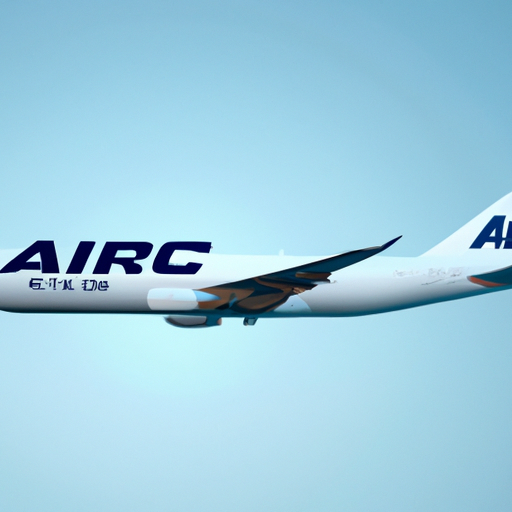
Trends and Analysis of July 2023 Global Air Cargo Data: IATA Reports
July 2023 Global Air Cargo Data: IATA Reports
The International Air Transport Association (IATA) has recently released its report on the global air cargo data for July 2023. This report provides valuable insights into the trends and analysis of the air cargo industry during this period. Let’s take a closer look at the key findings and what they mean for the industry.
According to the IATA report, global air cargo demand in July 2023 increased by 8.6% compared to the same month last year. This growth is a positive sign for the industry, indicating a recovery from the impact of the COVID-19 pandemic. It also reflects the increasing demand for air cargo services as global trade continues to rebound.
One of the notable trends highlighted in the report is the strong performance of the Asia-Pacific region. This region experienced a significant increase in air cargo demand, with a growth rate of 12.4% compared to July 2022. This surge can be attributed to the region’s robust manufacturing sector and the rising e-commerce activities in countries like China and India.
Another interesting finding is the continued growth of e-commerce as a driving force behind air cargo demand. With more consumers turning to online shopping, the need for efficient and timely delivery of goods has become crucial. Air cargo provides the speed and reliability that e-commerce businesses require, making it an essential component of the supply chain.
The report also sheds light on the challenges faced by the air cargo industry. One of the major concerns is the ongoing shortage of air cargo capacity. The reduction in passenger flights due to travel restrictions has significantly impacted the availability of belly space for cargo. This has led to increased competition for limited cargo capacity and higher freight rates.
To address this issue, airlines have been converting passenger aircraft into freighters and utilizing dedicated cargo planes to meet the growing demand. However, these measures are not sufficient to fully compensate for the loss of belly space. The industry is eagerly awaiting the resumption of international travel to alleviate the capacity constraints.
Furthermore, the report highlights the importance of digitalization in the air cargo industry. The adoption of digital technologies has become crucial for streamlining operations, improving efficiency, and enhancing customer experience. From online booking platforms to real-time tracking systems, digital solutions are transforming the way air cargo is managed and delivered.
In conclusion, the July 2023 global air cargo data presented by the IATA report indicates a positive growth trend for the industry. The recovery from the pandemic’s impact, the strong performance of the Asia-Pacific region, and the increasing role of e-commerce are all contributing factors. However, challenges such as the shortage of cargo capacity and the need for digitalization remain. As the industry continues to adapt and innovate, it is poised for further growth and development in the coming months.
Key Insights and Statistics from July 2023 Global Air Cargo Data: IATA Reports

July 2023 Global Air Cargo Data: IATA Reports
The International Air Transport Association (IATA) has recently released its report on the global air cargo data for July 2023. This report provides key insights and statistics that shed light on the current state of the air cargo industry. Let’s take a closer look at some of the highlights from this report.
First and foremost, the report reveals that global air cargo demand continued to show strong growth in July 2023. Compared to the same period last year, air cargo volumes increased by a remarkable 9.2%. This growth can be attributed to several factors, including the ongoing recovery of the global economy and the increasing demand for e-commerce.
In terms of regional performance, Asia-Pacific remained the largest air cargo market in July 2023. The region accounted for 38.9% of total air cargo volumes, followed by North America with 23.4% and Europe with 20.1%. This data highlights the importance of these regions in driving the growth of the air cargo industry.
Furthermore, the report indicates that all regions experienced positive year-on-year growth in air cargo volumes. Asia-Pacific saw the highest growth rate at 11.3%, followed by Europe at 8.7% and North America at 7.6%. These figures demonstrate the global nature of the air cargo industry and its ability to thrive in different regions around the world.
In terms of capacity, the report reveals that global air cargo capacity increased by 6.8% in July 2023 compared to the same period last year. This increase in capacity is a positive sign for the industry as it indicates that airlines are responding to the growing demand for air cargo services. It also suggests that the industry is well-positioned to handle future growth in air cargo volumes.
Another interesting insight from the report is the continued strong performance of the e-commerce sector. E-commerce has been a driving force behind the growth of the air cargo industry in recent years, and this trend shows no signs of slowing down. In fact, the report reveals that e-commerce-related air cargo volumes increased by 12.4% in July 2023 compared to the same period last year. This highlights the increasing reliance on air cargo services for the delivery of online purchases.
In terms of freight tonne kilometers (FTKs), the report indicates that global FTKs increased by 8.9% in July 2023 compared to the same period last year. This growth in FTKs is a positive sign for the industry as it reflects the increasing demand for air cargo services. It also suggests that the industry is well-positioned to handle the current challenges and uncertainties in the global supply chain.
In conclusion, the July 2023 global air cargo data from IATA reports provides valuable insights into the current state of the air cargo industry. The report highlights the strong growth in air cargo volumes, the regional performance of different markets, and the increasing demand for e-commerce-related air cargo services. It also reveals the positive growth in air cargo capacity and freight tonne kilometers. Overall, this data paints a picture of a thriving and resilient industry that is well-equipped to handle the challenges and opportunities of the future.
Implications and Future Outlook of July 2023 Global Air Cargo Data: IATA Reports
The International Air Transport Association (IATA) has recently released its report on the global air cargo data for July 2023. This report provides valuable insights into the current state of the air cargo industry and its implications for the future. In this article, we will explore the implications of this data and discuss the future outlook for the global air cargo industry.
One of the key findings of the report is the continued growth of the air cargo industry. Despite the challenges posed by the ongoing pandemic, global air cargo demand has shown a significant increase compared to the same period last year. This growth can be attributed to several factors, including the recovery of global trade and the increasing demand for e-commerce.
The report also highlights the regional variations in air cargo demand. While some regions, such as Asia-Pacific and North America, have experienced strong growth in air cargo volumes, others, like Europe and Latin America, have seen a more modest increase. These regional variations can be attributed to factors such as the strength of the local economy, trade policies, and infrastructure capabilities.
Another important implication of the July 2023 global air cargo data is the shift in the types of goods being transported. The report indicates that there has been a significant increase in the transportation of pharmaceuticals and medical supplies. This can be attributed to the ongoing efforts to combat the pandemic and the increased demand for healthcare products worldwide.
Furthermore, the report highlights the challenges faced by the air cargo industry, particularly in terms of capacity constraints. The global air cargo capacity has been severely impacted by the reduction in passenger flights, which are a major source of belly cargo capacity. This has led to a shortage of available cargo space and increased freight rates. To address this issue, airlines and logistics providers are exploring alternative solutions, such as converting passenger aircraft into freighters and utilizing dedicated cargo flights.
Looking ahead, the future outlook for the global air cargo industry remains positive. The report predicts that air cargo demand will continue to grow in the coming months, driven by the recovery of global trade and the increasing demand for e-commerce. However, there are also challenges that need to be addressed, such as the capacity constraints and the need for efficient and sustainable logistics solutions.
To overcome these challenges, industry stakeholders need to collaborate and innovate. This includes investing in infrastructure development, adopting new technologies, and implementing sustainable practices. Additionally, governments and regulatory bodies play a crucial role in supporting the air cargo industry by implementing favorable policies and facilitating trade.
In conclusion, the July 2023 global air cargo data provided by the IATA report offers valuable insights into the current state of the industry and its implications for the future. Despite the challenges posed by the pandemic, the air cargo industry has shown resilience and continues to grow. However, there are challenges that need to be addressed, such as capacity constraints and the need for sustainable logistics solutions. By collaborating and innovating, the industry can overcome these challenges and ensure a bright future for global air cargo.


